Your cart is empty
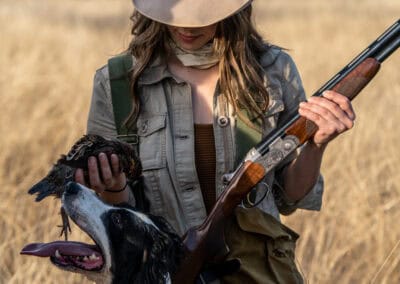
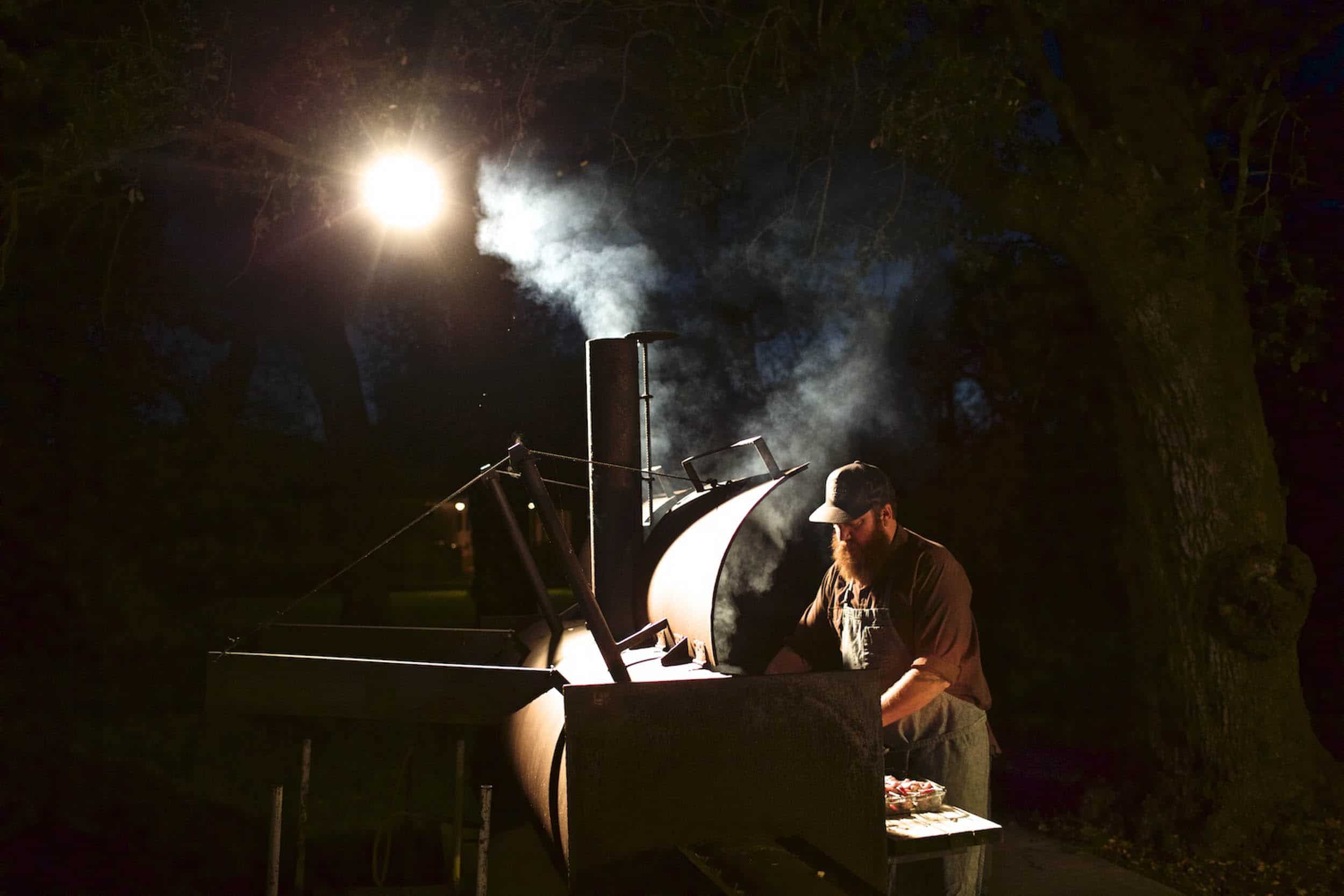
TYLER SHARP: Tell us a bit about yourself, your background, and how you discovered a love for hunting, conservation and cooking.
JESSE GRIFFITHS: I was born in Denton, in North Texas, and lived there for about 20 years. I worked in restaurants there starting at age 16, fished a lot, and partied. I remember loving to cook from an early age, and I was obsessed with catching and cooking fish, which hasn’t seemed to wear off yet. I came to hunting later in life. The intersection between cooking, fishing and hunting came pretty naturally, and I think that the choices I was making in the restaurants were informed by the natural conservation ethics one tends toward because of time spent outdoors. You don’t waste a deer’s life, so why waste a chicken’s? They both died for you. And for that matter, so did a turnip, but with a lot less drama. Living in Texas is also a big part of that identity. It’s a pretty agrarian state, and a wild state, too. It has incredible heritage, and it’s fun to reflect on this through food.
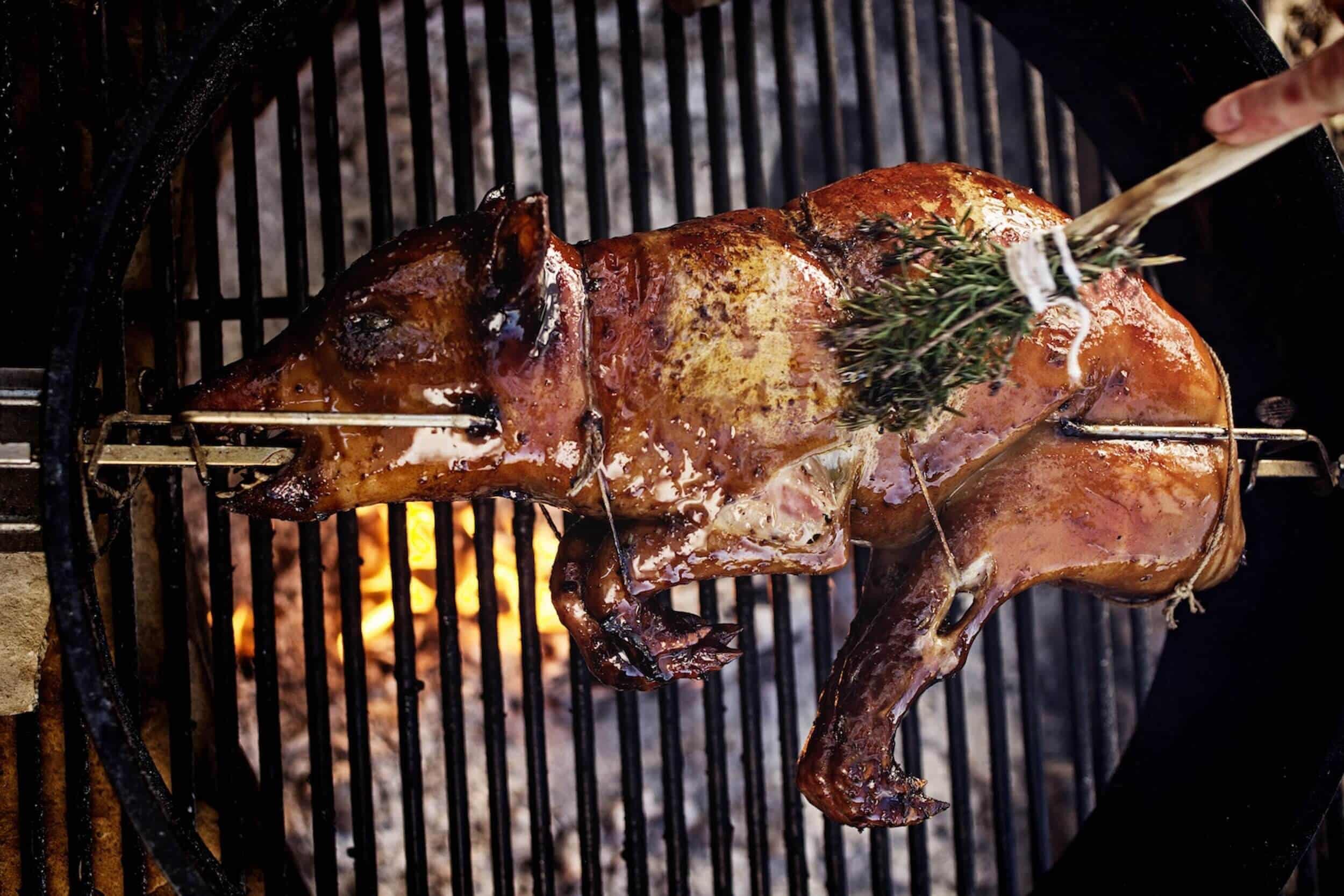
Given your background with cooking, was there a specific point where you made a strong connection between hunting and access to a natural food source? Why is this connection important?
Having killed things makes opening plastic packages of dead animal seem incongruous. You should reflect on the life of everything that died for you, and taking this into account forces you to reconfirm first that it is OK to eat dead things, and secondly to treat them well once dead. We tend, as a society, to undervalue our resources because we are so rich with them. Working hard for a few fish or doves or a hog can remind you of how valuable protein can be. A specific point? Not really. It was a slow build of small realizations that led to this respect for all food sources.
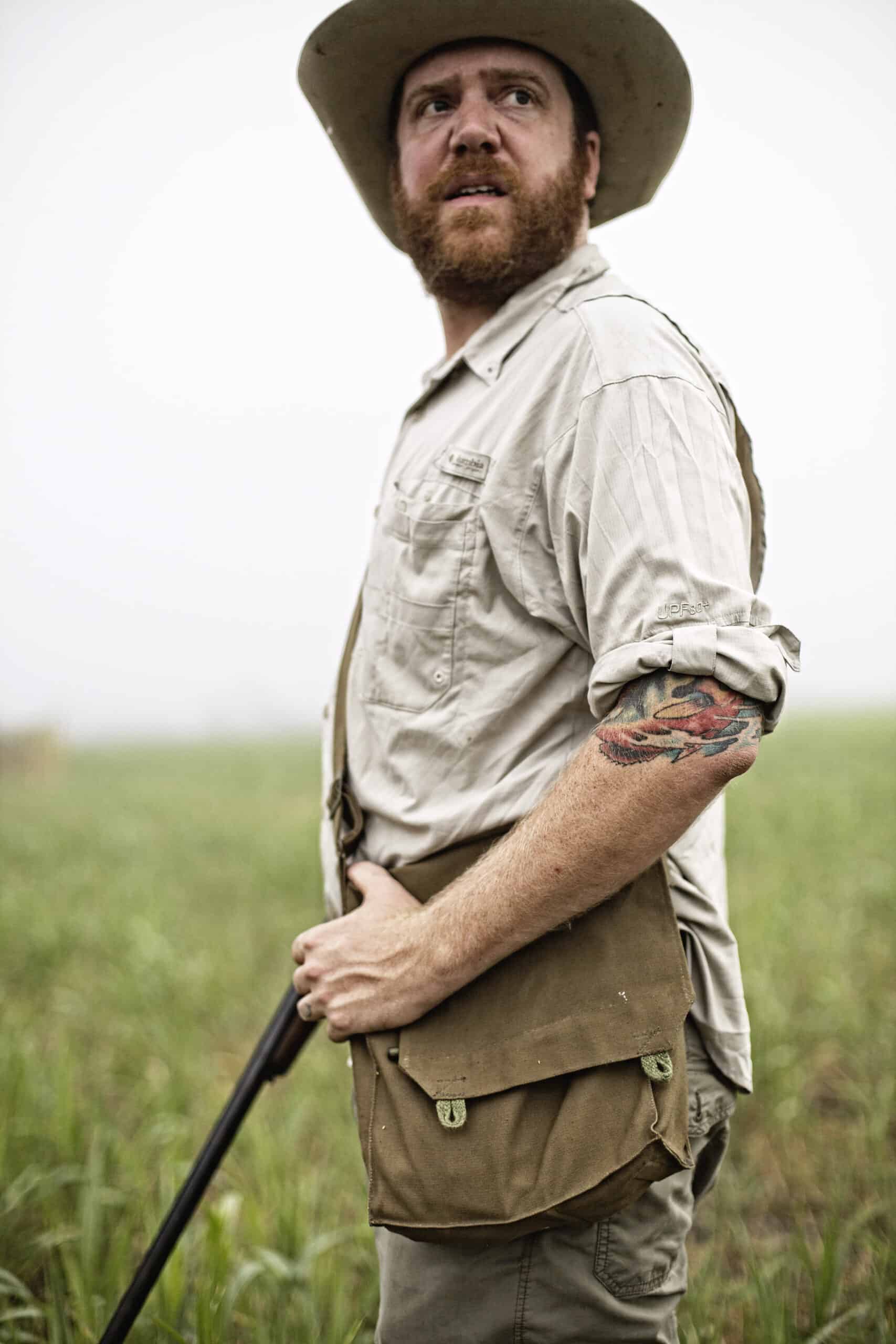
Tell us a bit more about your restaurant in Austin, Dai Due, and some of the things you’ve got going on there. What are you most proud of in that journey?
We are very particular about the food, and the source. We impose a lot of rules on ourselves for complicated reasons. I, to put it simply, want a place that serves what “our” food should be. Not reliant on outside sources, but just from our community. Defining that community is tricky. We source from Texas, and as close as possible, or the best product from as close as possible from Texas. We will get dairy from North Texas and subtropical fruits from South Texas and lettuce grown six blocks from the restaurant. There is no circumference of sourcing, like 200 miles or anything like that. I guess another way to put it is that our money is going to someone close, and I feel good about giving them that money. But Texas is a big state, and it’s changed in the last few years. I used to struggle to get a dozen chickens 10 years ago. Last week, I bought 250 pounds, no problem. As we’ve grown, so has the market and distribution systems. We also source a lot of game meat, like feral hogs, some exotic deer and antelope that come off of big ranches. We focus on feral hogs a lot, and I’m proud of that. And our wine list. It’s all Texas, and that pisses a lot of people off because they think it’s all bad. It’s not, and in fact, some of it is great. It’s not French wine, it’s Texan, and it tastes like it comes from here. I’m very proud to support the industry, and I couldn’t really make a case for serving what we do and not serving an all-Texas list. The food isn’t just geographic, but cultural, too. Texas is a nation of immigrants. We have an incredibly strong influence from Mexico here, as well as Cajun, Vietnamese, Spanish, African, name it. It’s so cool to be in such a richly diverse, growing region and have ideas for preparing stuff coming from all over. That’s just as important. What is Texan food? That’s the question we get to answer every day. It’s soy sauce made with pinto beans and wild boar burgers with kimchi, and it’s also enchiladas with yellow cheese and raw onions and brisket.
It seems like you place a lot of emphasis on seasonal, local ingredients in your menus. While some might discount this as a “trend” or “fad” in the restaurant world, I know you have strong convictions about this, and would love to hear why.
It’s popular right now! I like to say that eating locally is the second-oldest idea in the world. Of course people used to “eat local.” Hell, our grandparents did before World War II, mostly. Look at any great cuisine in the world, like Vietnamese, Mexican, French, Moroccan, whatever, and you’ve got food completely based on what was available to them, determined further by weather, preservation techniques, religion, immigration and culture. It’s a good trend. It supports the right people — farmers and ranchers — and it’s better food, so I’m fine with it. Just don’t lie about it. That also happens, which is a shame.
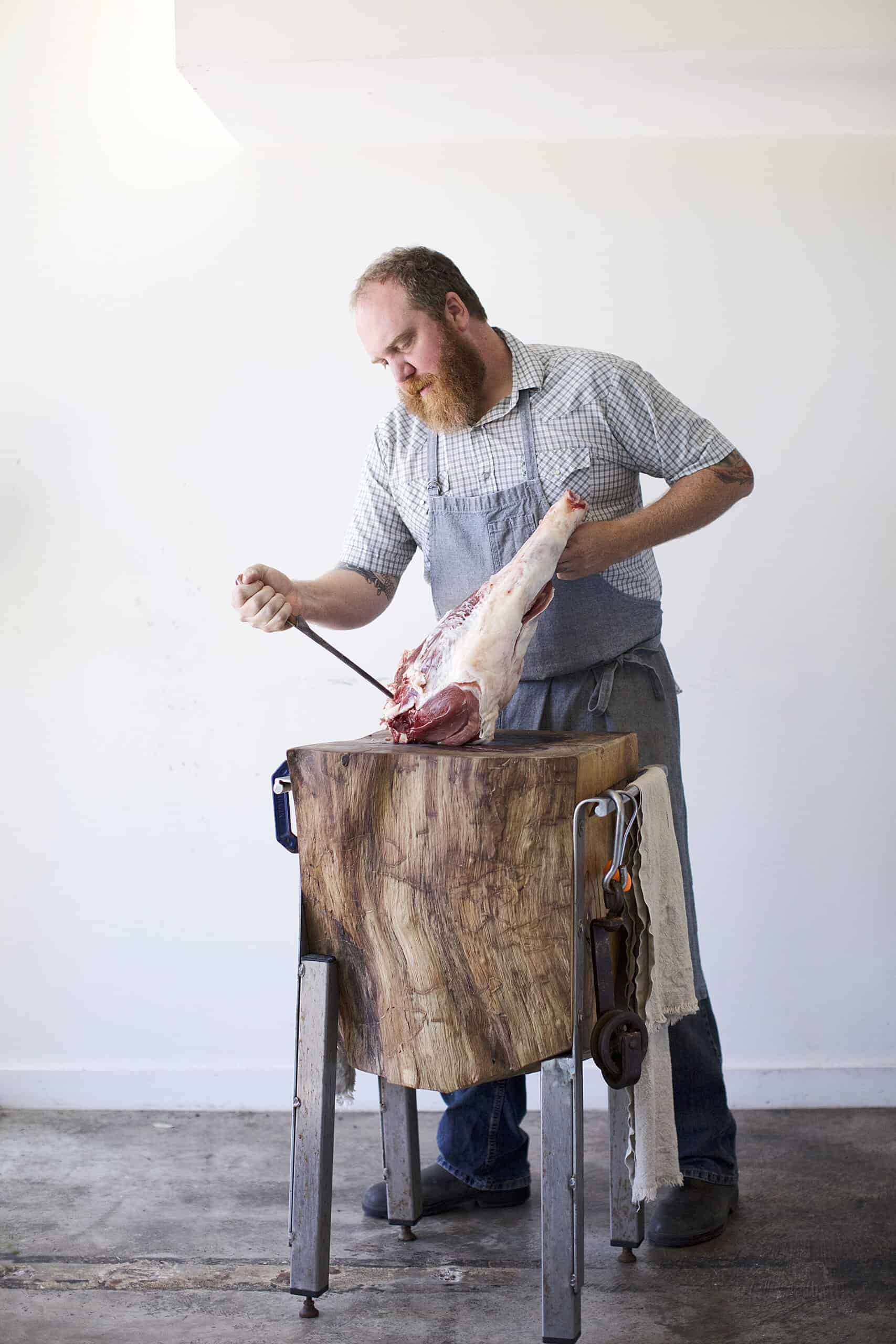
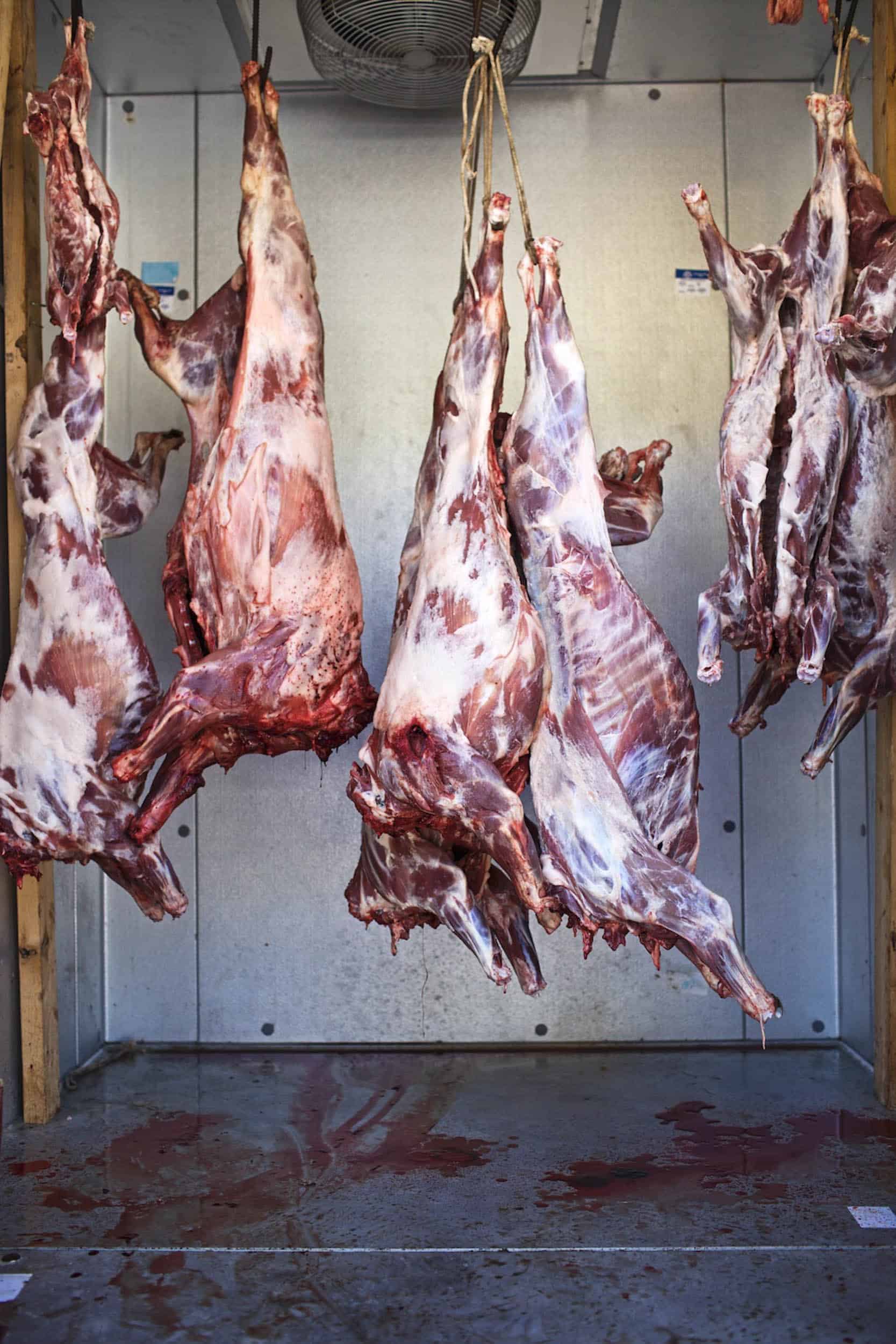
Your book Afield is an incredibly influential and notable cookbook that has helped shape a new movement within the intersection of hunting and cooking. Could you tell us a bit more about your inspiration for this, and what it was like working on it?
Thank you. I love hearing that the book has helped or inspired anyone. I wrote it because I wanted to create a book that was fun. Short stories for people with short attention spans like me, and accessible recipes. I learned to hunt as an adult, so I feel like I know what it’s like to not only learn, but to still be pretty excited about it. I want people to be excited, and to be confident and even make mistakes. We really emphasized things like bank fishing and small game and so forth, because I wanted to illustrate that it can work for anyone.
You’ve previously mentioned doing a second book, anything you can share about that? What have you learned from the public’s response to the first book that you’re taking into consideration on the next one?
Jody and I have been working on it forever, it seems like, but I’m excited. It’s all about wild hogs. I am obsessed with feral hogs. I think they’re cool and smart, and I love killing them, to be honest. It’s one of the only unambiguously moral things you can still do. They’re a menace. They fuck up everything, so we should shoot them. And they taste good, but not everyone believes me, so it is also a bit of a crusade to get people to enjoy and understand them better as far as them being food. I decided to focus on them because it was such a defining question whenever we did a class or a hunt or just in general. Texas, of course, has half the U.S. population of them, so it is germaine, to say the least. As far as accessibility, we looked at our favorite recipes from Afield and mimicked those in tone and ease. I think people like familiar, simple recipes that they’re going to enjoy eating and, most importantly, enjoy cooking. This means on a Tuesday night, so things have to be simple. There’s recipes for meatball subs, tacos, burgers, meatloaf, sausages, and lots of slow-cooked stuff. Plus stories about hunting and clear step-by-step photos of different butchery techniques. We are pretty proud of what we have so far and are really excited to get it out to folks soon.
A big part of your cooking philosophy involves wild hogs, despite the commonplace stigma that they are “nasty” and can’t be eaten. Has it been a challenge to re-educate folks about the delicacy that lies within if prepared right?
Damn right. You do it one person at a time. There is a lot of myth around hogs, complicated by some things that are true, so it’s an education. I think it’s very important to represent them as something that can vary greatly, and teach adaptability to these variables rather than static approaches, if that makes sense. We serve a lot of big-ass boars to a lot of doubters, and we convert a lot of people. Now, they’re not going to clean and butcher every single big boar forever now, but they’ll be equipped with the knowledge to cook it if they want to.
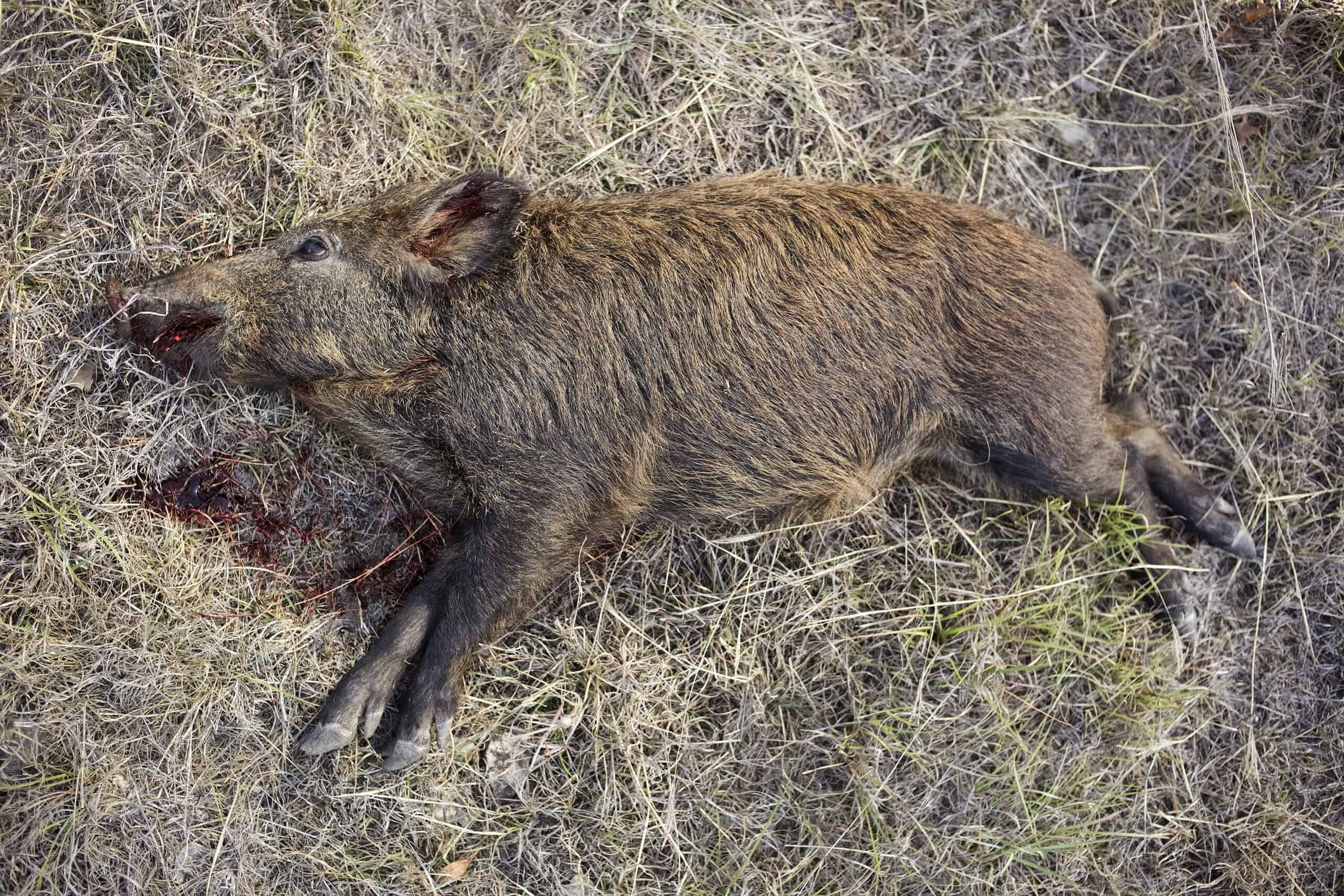
Education is a major pursuit of yours, so tell us a bit more about your goals with the New School for Traditional Cookery, and what you hope to accomplish with these classes.
I always start classes off with a statement to the effect of, “We are here to teach you what you want to know, so ask questions and lead this in the direction you want to go.” We stay flexible and listen to questions. When you hear the same questions over and over, you incorporate that into your teaching. Over time, you’ve answered most of their questions before they’ve been asked. I love empowerment. I love when people send me pictures of food they’ve cooked, or things they’re doing that I would have never thought of. Again, getting people excited because of what we’ve taught them in these classes.
Whether through foraging skills, hunting, or teaching folks how to break down and prepare animals, you are in a sense re-introducing them to their original human nature. Maybe talk a bit more about this, and why it’s important in today’s world.
People spend so much time inside in front of screens that being outdoors is more important than ever. This sounds very trite, I know, but it’s the truth. If you know how to break down a deer, even basically, that puts you in a distinct minority these days, and makes you a little bit of a badass, relatively. What if the lights went out for a week? Most people would have no idea what to do, and there is a sense of security and accomplishment in knowing how to provide for yourself or your family through hunting or foraging. It’s a skill more people should have, or at least have more respect for.
Viewing hog hunting through a lens of wildlife management, and given that there is a major problem with hog overpopulation in Texas, how do you see your goals with hog harvesting helping with conservation, resource management and ecosystem health?
It’s so complicated. I can talk all I want about the romance of treating hogs with due respect, but I didn’t lose 30 acres of freshly planted corn yesterday to a big sounder of hogs. I do see that there is a lack of communication and interaction between hogs, biologists, landowners, people who lack good food sources, and chefs. There is absolutely not a clear answer in there, but I think it’s an exciting problem to have. What if they tasted terrible? Then we would just have a wholesale eradication on our hands. It would be violent and without limits, but since there is an undeniable edibility factor, it’s a positive complication. I kill every hog I see and urge everyone to do so, for starters. Our two restaurants serve about 300–400 hogs a year, and we kill a few dozen in our guided hunts and classes. That’s not really doing anything in the big picture, to be clear, but I think it lands us a seat in the discussion.
Tell us a bit more about your partnership with Texas Parks and Wildlife Foundation, and what sort of opportunities might exist through working with an organization with such a great conservation track record.
People will eventually bitch about any governmental agency, but I really love what Texas Parks and Wildlife Department and the Texas Parks and Wildlife Foundation (TPWF – the private fundraising entity) have done in this state for wildlife and wild places. They just do amazing work. The managing agency has to be involved in the conversation for us to accomplish anything, and TPWF does unprecedented work in helping support conservation in Texas. We are just in the beginning of our partnership, and I’m really excited about what’s to come in 2019. Everyone involved loves this state and our resources, so it’s particularly compelling, especially as a father of a Texan, that this group does the work that it does. It’s reassuring to know that they are working so hard to make sure that my kids and their kids can still enjoy these places, whether it’s hunting or fishing.
Do you think it’s important that we as hunters should be making greater efforts to educate non-hunters or the public at large about the merits of hunting, the role it plays in conservation or wildlife management, and the benefits of being able to source your own food? What is at stake if we don’t do this?
Yes. Absolutely. Never before has hunting been so focused on food as it is now, so we have a unique opportunity to frame hunting in a logical light. People are more informed about food in general. They go to farmer’s markets or at least understand the virtues of doing so. Hunting is about food, being outside, and conservation of places that should never be paved, so what’s not to understand about that? We have to seize on this and not continue to antagonize non-hunters, even and especially when they argue with ignorance. Remember that we don’t need everyone to hunt, just regard hunting and the lands that it saves as a birthright and something wholly natural, not a drunken bloodsport. It will take time, but we live in unparalleled times as far as communication and conversation. I think the trajectory of the modern hunter is the most on-track and focused in its core beliefs that it has ever been. We have to stay true to eating, educating and preserving.
This story was originally featured in Modern Huntsman, Volume Three: Wildlife Management
Related Stories


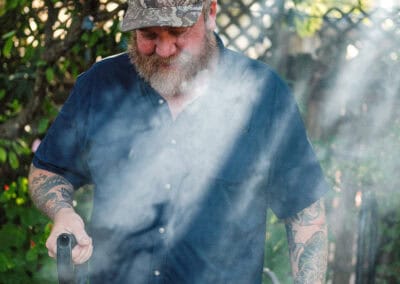
Latest Stories


